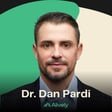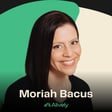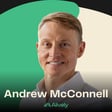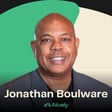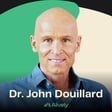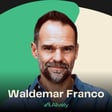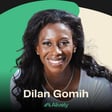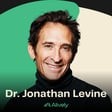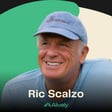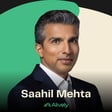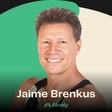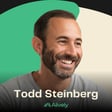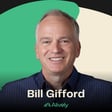
Reverse Aging Through Exercise with Dr. Bob Arnot - E51
Can someone really reverse aging? What if you could reverse your biological clock and be more physically fit than ever before, even in your senior years?
As you get older, you might think that your best days are behind you. Instead of thriving, it’s easy to accept the aches, poor sleep, and waning motivation. But what if you could radically reshape what’s possible for your body and mind at any age?
This episode takes a deep dive into the habits and science-backed protocols that can help you reverse aging. We'll hear from a prominent medical doctor who reveals how he achieved the physiological markers of someone nearly 50 years younger through health optimization.
Dr. Bob Arnot is a doctor of internal medicine, journalist, author and former host of the Dr. Danger reality TV series, with numerous appearances on talk shows including Larry King, NBC and Late Night with Conan O'Brien. He is well known for his humanitarian work, and has sat on the board for Save the Children, the UN High Commission for Refugees and Global Outreach Doctors, among others. He is also the co-founder of the American Working Group on Greater Syria, and is the founder and chairman of Lifeline Iraq. His focus is now on food technology and longevity, and he is the Chief Innovation Officer at Health Tech Without Borders.
“People get so trapped by their ideology that they can't eat something or they can't do an exercise or they don't want to do something because they're ideologically stuck.” - Dr. Bob Arnot
In this episode you will learn:
- Why Dr. Arnot believes it’s possible to physiologically get younger with elite-level fitness, and how he personally maintains a biological age decades younger than his chronological age.
- The concept of a “portfolio lifestyle,” and how diversifying activities across athletics, music, technology, and humanitarian work contributes to sustained motivation and fulfillment.
- How advanced tracking devices and metrics like heart rate variability (HRV), VO2 max, and continuous glucose monitoring guide Dr. Arnot’s training, recovery, and dietary decisions.
- The importance of structured sleep and nutrition routines, such as early dinners, whole foods, and sleep hygiene, to optimize recovery, cognitive function, and HRV.
- Why psychological mindset, meditation, and proactive agency are as crucial as physical protocols in extending healthspan and maintaining vitality.
- Key takeaways on purpose-driven living: investing time in meaningful activities, continually reinventing oneself, and why giving full effort, no matter the task, optimizes both health and happiness.
Resources
- Connect with Dr. Arnot on Instagram: https://www.instagram.com/drbobarnot/
- Learn more about his innovative work with Health Tech Without Borders: https://www.htwb.org/
- Read his book, ‘Turning Back the Clock’: https://www.amazon.com/Arnots-Guide-Turning-Back-Clock/dp/0316051748
This podcast was produced by the team at Zapods Podcast Agency:
https://www.zapods.com
Find the products, practices, and routines discussed on the Alively website:
https://alively.com/

